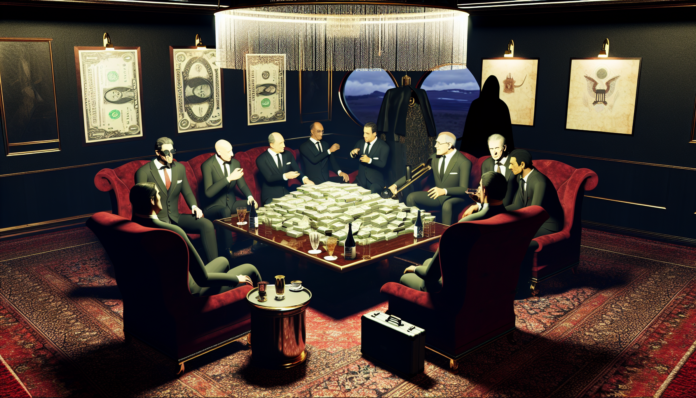Behind Closed Doors: Unraveling the Affairs and Deceptions of Richard Nixon
Introduction
Richard Milhous Nixon was the 37th President of the United States, serving from 1969 until his resignation in 1974 during the Watergate scandal. Behind the political turmoil and the infamous break-in at Democratic National Committee headquarters lay a much more personal narrative—one involving deception, infidelity, and a complex relationship with morality. This era, marked by a combination of post-war conservatism and emerging countercultural movements, created a complex backdrop against which Nixon operated.
During the late 1960s and early 1970s, the American public grappled with shifting societal norms, particularly concerning sex and political integrity. The optimism of the 1960s was contrasted sharply with the disillusionment that would define the 1970s. This dichotomy makes Nixon’s alleged extramarital activities and the ensuing scandal a significant study of societal hypocrisy and double standards.
The Scandal
Although Nixon is primarily remembered for his political scandals, whispers of personal affairs hovered over his presidency. One of the most profound allegations involved a purported affair with actress and model, Liddy Dole. Rumors circulated about their clandestine meetings, fueled by reports from clandestine sources and rival political enemies.
While hard evidence of a physical affair remained elusive, the insinuations contributed to a narrative of a morally corrupt leader. In his memoirs, Nixon himself noted that “politics is a dirty game,” perhaps alluding to the charged atmosphere where personal character was often as scrutinized as political decisions.
In 1972, amid the Watergate scandal unraveling, various publications and biographers aimed to challenge Nixon’s carefully constructed public image. But the direct impact of these alleged affairs faded in the shadows of the more prominent Watergate revelations, leading to Nixon’s eventual resignation in 1974. Critics and supporters alike acknowledged that Nixon’s personal life was fraught with moral ambiguity, which only compounded the scandal surrounding his political maneuvers.
As the controversy about Nixon’s personal life simmered, the Washington Post editorial board mused, “It is difficult to imagine a higher price for a dishonorable man in a dishonorable office,” suggesting a collective disappointment in Nixon’s perceived immorality.
Moral and Cultural Analysis
The societal reaction to Nixon’s alleged infidelities was mixed. On the one hand, the conservative base largely defended him, prioritizing political ideology over personal flaws. Conversely, more liberal factions saw his presidency as a personification of the deep-seated corruption they believed mired American politics.
Consequences for Nixon were profound yet delineated primarily by the political fallout from Watergate rather than from allegations of personal indiscretions. The cultural norms of the time did not encourage the public to expect personal integrity from politicians, resulting in a relative quiet on the issue of his alleged affairs compared to today’s standards of accountability and transparency.
Fast forward to today, if similar allegations against a public figure were surfaced, the reaction would be decidedly different. In an age of social media and a public thirst for authenticity, a scandal involving infidelity would likely invite significant backlash. Politicians are now expected not only to legislate honorably but to embody moral integrity, a standard that was less rigorously applied during Nixon’s presidency.
Moreover, today’s cultural narratives around infidelity, especially concerning public figures, involve complex discussions about power dynamics, consent, and personal failings—discussions that have evolved far beyond Nixon’s time. The societal lens now reveals that integrity matters beyond the presidential office, reflecting the ever-changing tides of American values.
As we reflect on Richard Nixon’s legacy, it becomes clear that both his presidency and personal life serve as artifacts of a tumultuous period in American history, embodying the turbulence of societal norms that continue to evolve as we navigate the intersection of politics and personal integrity.

